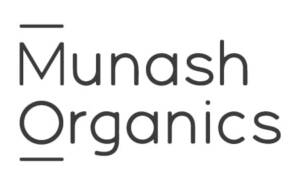Conference Speakers

Costa Georgiadis
HostWe have pleasure in welcoming eco-visionary, landscape architect and ABC Gardening Australia’s host Costa Georgiadis as our MC for the 2021 Victorian Recreational Beekeeper Association Annual Conference. Costa’s charm, charisma and passion make him an appealing event host. Costa is engaging and highly entertaining and is sure to give the Conference a green edge.
Costa is a qualified landscape architect and TV personality. his first hosted show was SBS’s Costa’s Garden Odyssey and he became host of ABC’s Gardening Australia in 2012. He worked in Europe on roof-top gardens, community composting, natural swimming ponds and wetlands working in Vienna, Austria and Bavaria. Costa speaks German, French, Czech, Greek and English. He has an interest in sustainability, health and nutrition.

Anita Long
Tasmanian Junior BeekeepersAnita Long is a passionate recreational beekeeper with a focus on engaging youth in beekeeping and building a strong connected youth beekeeping network in Australia.
Anita is the founder of Tasmanian Junior Beekeepers, a not for profit organisation which was formed in 2017 as a way of giving children access to beekeeping in a safe and inclusive environment.
In 2019 Anita received the Tasmanian women in agriculture’s encouragement award in the Agrifutures Rural women’s awards and attended the International Meeting of Young Beekeepers which was held in Slovakia. In 2020 Anita initiated and hosted the first national youth beekeeping event and received a Churchill fellowship that will give her the opportunity to investigate development programs overseas which will help her to build more connected and replicable youth programs here in Australia.
Anita believes as an industry we need to focus on having a strong succession plan for the future, as well as providing grass roots pathways for children and young adults to participate and engage in beekeeping and bee awareness.
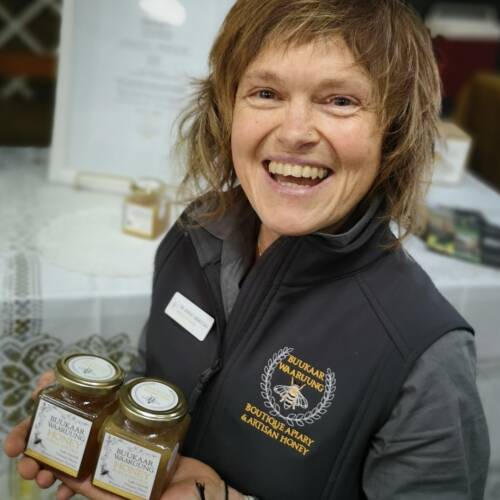
Dr Anna Carrucan
Project Manager, Wheen Bee FoundationDr. Carrucan joined Wheen Bee Foundation in July 2020 as a Project Manager for our Powerful Pollinators Project.
Dr. Carrucan resides in the heart of the majestic volcanic plains of western Victoria, and is a professional beekeeper and botanist. In her spare time, Anna enjoys trail running and photography, gardening and art. Anna holds a Doctor of Philosophy (2001) – The University of Melbourne Bachelor of Science (Honours) (1995) – The University of Melbourne Graduate Diploma of Education (2003) – The University of Melbourne Master Tree Grower (2015) – Otway Agroforestry Network Bee Ambassador (2019) – Wheen Bee Foundation

Benedict Hughes
Australian Pollinator AllianceBenedict is a well-known registered Beekeeper; as The Practical Beekeeper he collects swarms, manages hives, extracts honey, teaches and loves bees.
Benedict is also a commercial migratory beekeeper who runs around 100 beehives across Victoria. He produces small batch, raw local honey which is available through Farmers Markets and select retail outlets. His bees also provide pollination services for Almonds and other horticulture crops.
Benedict is the resident Beekeeper at Ceres (Centre for Education and Research in Environmental Strategies) and is approved by the City of Darebin to keep bees in Darebin Parklands and Bundoora Park.
Benedict regularly runs school incursions about bees and beekeeping, he also delivers adult educational courses at Melbourne Polytechnic and CERES in Brunswick as well as at Edendale Community Environment Farm in Eltham.
Benedict is also the founding President of The Australian Pollinator Alliance, a not-for-profit dedicated to promoting the health of bees and all pollinators, critical to our food and natural environment, through education, research and conservation

David Briggs
David is a third generation beekeeper based in North Eastern Victoria. Working apiaries in the north east valleys and foothills, David rears mated queen bees and queen cells for supply to industry. He also maintains through the use of Instrumental Insemination two discrete populations of Italian and Caucasian breeding stock.
David has been operating commercially since 2007, learning the craft of queen breeding from his father and a number of industry mentors. Prior to taking up beekeeping David worked in regional arts administration as an educator, project manager and regional arts development officer, travelling throughout Victoria assisting artists and community groups in the development of festivals and arts projects.
From a past life David holds a Bachelor of Arts (Visual) from the Canberra Institute of the Arts, and is a fellow of the Alpine Valleys Community Leadership Program.
David is currently secretary for the North Eastern Apiarists’ Association and treasurer and committee member of the Australian Queen Bee Breeders Association.
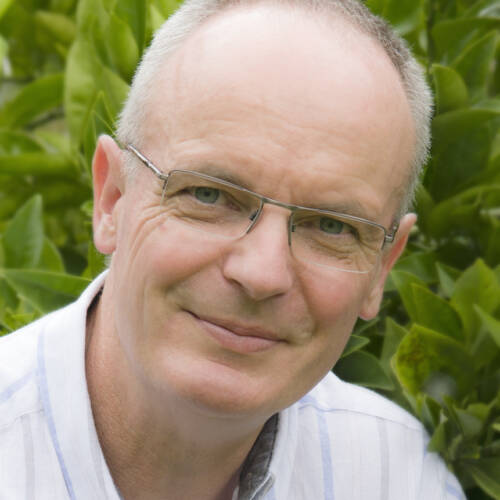
Denis Crawford
Researcher, writer, photographerDenis Crawford has been working with insects for 40 years either as researcher, writer, photographer, or pest management adviser.
He is the author of Garden Pests, Diseases & Good Bugs and co-author of Backyard Insects.
Denis is a regular contributor to Hort Journal Australia and Organic Gardener magazine, and his blog one minute bugs features articles and videos about insects.
His Conference talk is titled Headbangers, Dupes & Brawlers – an entomological tale of reproduction, deception and violence.

Evan and Rainer Spoljaric
Botanical BrewAfter a generous honey harvest in their first season of beekeeping, the Spoljaric family were looking for a new way to use such a special product. From foundations in sourdough baking, they followed the path of the myriad of fermented foods, leading them to Jun – a ferment of honey & green tea which uses a Symbiotic Culture of Bacteria & Yeast to initiate fermentation.
After several years of refining the process to achieve the best flavours – using techniques from low-intervention winemaking & beer brewing, they’d made Australia’s first Jun available for the public in late 2018, using native Australian botanicals to highlight flavours of the Australian landscape & create rare & unique flavour combinations.

Fiona Chambers
CEO Wheen Bee FoundationFiona has 30 years business experience in the production and marketing of agricultural and horticultural commodities both in Australia and overseas.
Before taking up the position of CEO with the Wheen Bee Foundation in 2016, Fiona lectured in business management and marketing at Marcus Oldham College in Geelong, Victoria.
Fiona is a Churchill Fellow, ISS Fellow and Fellow of Williamson Community Leadership Program.

James Watts
Researcher, Whale LabsJames is a researcher trained in biochemistry and molecular biology working on novel antibiotics for antibiotic-resistant strains, small polypeptides in dementia research, and next generation sequencing for pasture die back.
James’s business focuses on building biotechnological products. One of these products is a bee venom collector which he hopes will revolutionize the beekeeping industry.

Jessica M. Bikaun (née Moran)
ResearcherDuring my Bachelor of Science at the University of Western Australia, by chance and great timing, I volunteered as a field assistant for the Centre for Integrative Bee Research (CIBER). I quickly became addicted to bees and completed my Honours research on honey bee reproductive biology with CIBER’s Prof. Boris Baer.
Since 2018, I have combined my passion for honey bees and biosecurity through my PhD research on American foulbrood biomarkers and sensors with the CRC for Honey Bee Products. When I’m not in the lab or the bee yard, I work for the WA Department of Primary Industries and Regional Development to increase awareness and education about bee biosecurity.
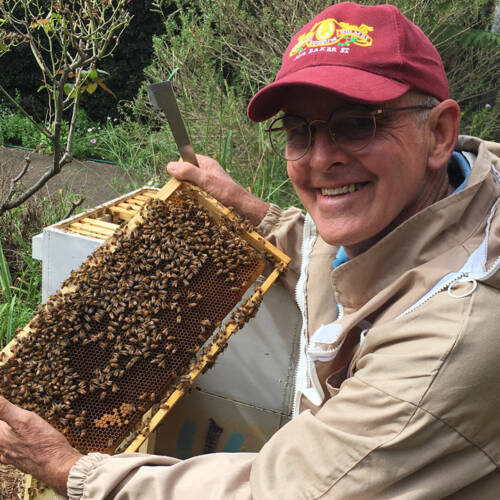
Kevin Tracy
Queen breederKevin Tracy has worked across a range of beekeeping practices including honey production and selling, pollination of crops, queen bee production & breeding.
As well as the above, Kevin has spent a deal of time Mentoring Beekeepers through engagement
with Bee Clubs where he has also given many educational talks.
Kevin recently trained Commercial Beekeepers in South Australia (Adelaide, Kangaroo Island) for the
SAAA, equipping people for producing their own Queen bees for post bushfire recovery.
Kevin is currently working at Tocal College where he is a Lead Trainer/educator in the Certificate 3
Beekeeping Program delivery. Some VRBA members may have previously done courses with Tocal
College and others are going to the pre-conference Biosecurity training Kevin will be Conducting.
Kevin’s main focus is Queen bees and he holds a Cert3 in Beekeeping, Cert4 TAE and is a member of
the QBA, NSWAA, SAAA, AQBBA, and ABA.
“My presentation is not about farm-lot feeding of bees. I am talking about responsible management
of the nutritional needs and practices to benefit the bees in our care.
I am confident that there will be some helpful information and techniques shared with the VRBA at
this Conference. Healthy bees are better bees.”

Madlen Katz
ResearcherMadlen’s background is in research on honey bee nutrition, foraging behaviour and pollination at the University of Western Australia with the Centre of Integrative Bee Research (CIBER). During her PhD she studied the effects of nutrition on colony health and crop pollination efficiency. Since last year, she joined the Department of Primary Industries in NSW at the Tocal Agriculture Centre. In her role as the Honey Bee Industry Development Officer she is focusing on applied research to improve the productivity, profitability and sustainability of the beekeeping industry. She is currently conducting research on the palatability and utilisation of protein supplements, and on honey bee pollination of blueberries grown under protective covers.

Nadine Chapman
Research FellowI completed my PhD under Professor Ben Oldroyd at the University of Sydney. I discovered that hopelessly queenless colonies attract workers from other, mostly queenless, colonies and that these interlopers produce more offspring than the workers that belong to the colony.
I then made a brief foray into stalk-eyed flies before returning to the University of Sydney, where I have largely worked on industry driven projects such as creating a genetic test to pick up Africanized bees in quarantine and determining if queens produced early or late in the season have enough mates.
Currently I am working on Plan Bee, Australia’s Honey Bee Genetic Improvement Program and I do a lot of extension activities with eXtensionAUS Professional Beekeepers. I have been reviewing the literature on breeding for Varroa resistance as part of my work for Plan Bee and this will be the subject of my talk.

Scott Denno
HiveMind Community ApiaryScott started his beekeeping journey as a recreational beekeeper based in Ballarat before moving into sideline beekeeping in Central and Western Victoria. Completing his Certificate Three in Beekeeping with NSW DPI Tocal College in 2018 Scott and his beekeeping partner Amanda operate Backyard Beekeeping Ballarat and Ballarat Beekeeping Supplies. Scott completed his Certificate Four in Training and Assessment in 2020.
Scott is the lead beekeeper for HiveMind Community Apiary, a therapeutic apiary for people living with mental illness in Ballarat. The Apiary exclusively uses the Flow Hives – Classic, Flow Hive 2 and Hybrid Flow Hive models.
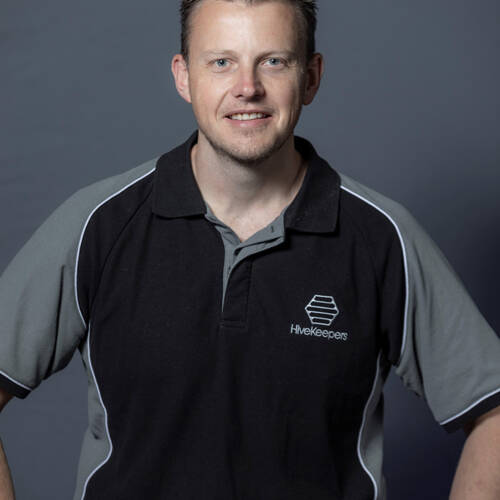
Simon Mildren
CEO/Founder HiveKeepersSimon is an enthusiastic beekeeper and the CEO of HiveKeepers, a Victorian based innovative technology company working with bees. Simon and his team see value in carefully fusing technology and bees to create well informed beekeepers who make smarter and more timely decisions with bee health and wellbeing as the core focus.
Our sponsors
Major Sponsor

City of Greater Geelong
This initiative is proudly supported by City of Greater Geelong through its grants program.
Gold partners

Agriculture Victoria – AIAC
‘Funded by the Victorian Honey Bee Compensation and Industry Development Fund’.
The Conference Organising Committee is thankful for a grant secured to help us fund this event for all Recreational Beekeepers in Victoria for 2021.

The Beekeepers Club Inc
The Beekeepers Club is based in the Eastern suburbs of Melbourne and supports beekeepers and beekeeping with training courses, information sharing and mentoring.
Meetings are held on the 3rd Thursday of every month at 7:30pm at their venue in Blackburn North. Regular beginners and advanced courses providing hands on experience are held at the club apiary in Heidelberg.
Bronze partners
Ballarat Beekeeping Supplies
We stock supplies for the Backyard Beekeeper specialising in Australian made or designed beekeeping merchandise. You can find us at 306 Errard Street South, Ballarat Central.
Rooftop Honey
Since 2010 they’ve been flying the flag for bees in Melbourne.
Rooftop Honey are Beekeepers with a vision of bringing bees back to the city and the suburbs of Melbourne. The aim is to be part a global effort to help save the honey bee from the various threats of disease and human habitation.
Background
The Victorian Beekeeping Clubs Conference was developed in;
- Response to the changing face of beekeeping and increasing demand from recreational, sideline and part-time beekeepers to be able to access high quality, flexible and professional education opportunities; and
- Recognition of the challenges facing beekeepers in adequately responding to the needs of recreational, sideline and part-time beekeepers;
The Victorian Beekeeping Clubs Conference was developed in 2018 to respond to these needs by offering flexibility in its weekend delivery, opportunities to engage and connect with like- minded beekeepers from across the state and the provision of customised and quality content.
Aims and objectives
To deliver an annual Victorian Beekeeping Club Conference that:
- Delivers high quality, flexible and professional education for beekeepers;
- Provides networking and engagement opportunities for beekeeping delegates from across the State;
- Supports Agriculture Victoria’s access beekeeping clubs to deliver biosecurity awareness on honey bee pests and diseases;
- Delivers content that is customised to meet the needs of the recreational, sideline and part-time beekeeping audience; and
- Fosters on-going collaborative working relationships with Victorian Beekeeping Clubs.
Past conferences
2019 Conference

The Beekeepers Club Inc. is the lead host beekeeping club for the 2019 Conference. The Beekeepers Club Inc. is the largest recreational club in Victoria with a member base of 360+
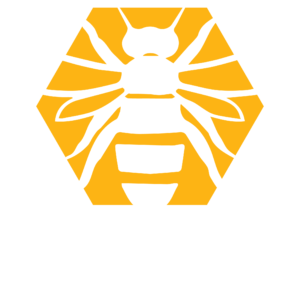















 The Wheen Bee Foundation
The Wheen Bee Foundation


 Latrobe Valley Beekeepers Association
Latrobe Valley Beekeepers Association

 Meleebee Farm
Meleebee Farm